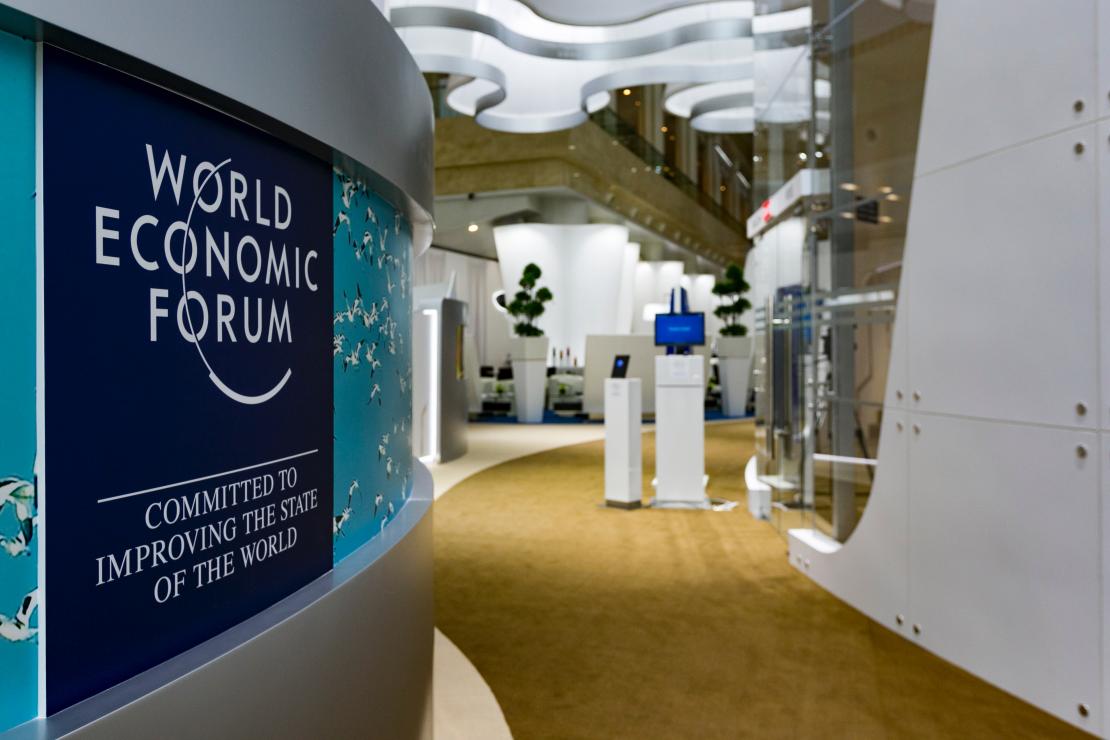
The 53rd edition of the WEF Annual meeting was held this week in Davos, Switzerland. As usual, it brought together top decision-makers from governments, businesses, and civil society to address major global issues and priorities for the years ahead.
It happened at a moment when the world is at a critical inflection point. Economic growth in the world's largest economies is stalling while navigating headwinds from rising food and energy prices. The COVID-19 pandemic and the war in Ukraine have taken global challenges to a whole new level. For the first time since the 1970s, the world is facing a precarious disequilibrium with growth and inflation moving in oppositive directions.
This is the framework in which the event occurred. Whilst a decade ago, the summit was all involved in an upbeat mood ("the world is now in a post-crisis stage," it was said…), ten years on, there seems to be less optimism. Instead of a "post-crisis" moment, as it was referred to at the meeting, "it's more common to talk of a "permacrisis," of a world buckling under a never-ending cascade of calamity — war, climate catastrophe, energy price chaos, inflation, epidemics of hunger and disease, political instability and widening economic inequity."
Main themes this year covered:
- The cost of living crisis: The big stories coming out of Davos this year are full of phrases like "fragmenting global economy," "economic uncertainty," and "the year of inflation.".
- The ongoing war in Ukraine - Russia's invasion of Ukraine dominated WEF's exceptional spring meeting last May, which took place just three months after the first strikes on Ukrainian territory. As was the case in May, Ukraine's president Volodymyr Zelenskyy addressed the event via video link claiming for more help to fight this decisive battle for freedom and democracy. For the second consecutive year, Russia did not have a presence at Davos. The ongoing conflict was one of the most pressing issues being discussed this year, not least because of its implications for global security, defence policies, energy, and food production.
- The climate crisis: The UN Secretary-General accused fossil fuel producers and their financial backers of "racing to expand production, knowing full well that their business model is inconsistent with human survival.". António Guterres said the commitment to limit global warming to 1.5 degrees above pre-industrial levels is "going up in smoke. We are flirting with climate disaster. Every week brings a new climate horror story". Enough said on where we are.
- The growing food crisis: Food insecurity is largely interconnected with other global problems, the key among them being the climate crisis. The loss of biodiversity, ever-extreme weather, and the increasing number of natural disasters have played their part in growing food shortages. In 2022, the world faced the triple threat of food, energy, and fertiliser shortages. Experts are already warning that more people will face hunger in 2023 than the previous years as food prices continue to spike, shortages bite deeper and more livelihoods are decimated.
Here you can find a summary of the main points of each of the five days of the event.
An ever-present issue that floated during the whole event was clearly the discussion on "deglobalisation". Gita Gopinath, the number two official at the IMF, said that the IMF is worried globalization is in retreat. "We're very concerned about geoeconomic fragmentation. The issue had come up a lot in meetings with member countries at the conference", she added.
One of the key moments in the conference to understand "where we are" occurred when U.S. Trade Representative Katherine Tai said that the world needs to shift to a new trading system that aims to promote inclusiveness, resilience and sustainability. She warned that the shift to a new economic system would require governments and businesses to put in extra work and face changes, including less efficiency and added costs. "Your less efficient world economic system will necessarily mean that we can't just be pursuing the lowest cost and the maximum cost efficiency. The new system requires participants to pay premiums in exchange for "an insurance policy" that costs money". In other words, I add, the so-called "peace dividends" are over and the world needs to adjust to it.
At the end of the conference, we had the typical closing remarks delivered by WEF President Borge Brende. In a very upbeat address, he listed some 30ish "calls to actions/protocols" that were agreed upon during the event. All great, but may I suggest that next year the Opening Remarks will be a review of what was really delivered? One just has to go back to what was agreed in the last three years to understand why I finished the article with this question…
Have a great and impactful week!
Nuno Moreira da Cruz
Executive Director
Center for Responsible Business & Leadership
This article refers to edition #174 of the "Have a Great and Impactful Week" Newsletter and covers SDG 13 and 16.
Subscribe here to receive the weekly newsletter.